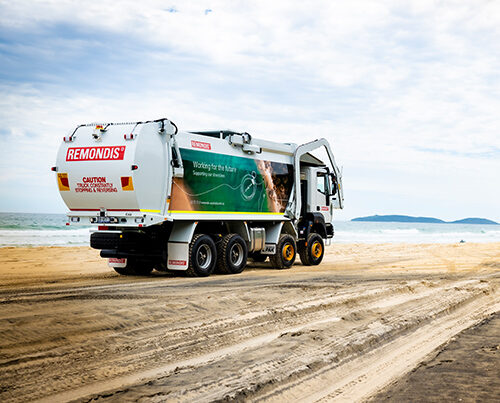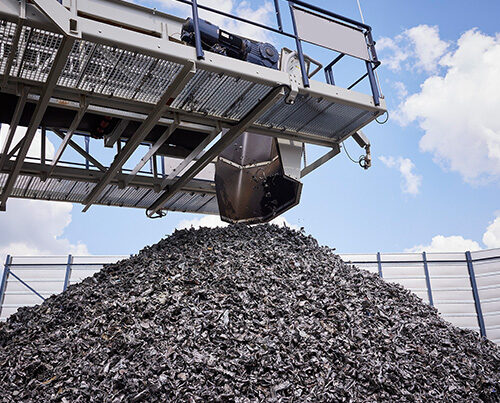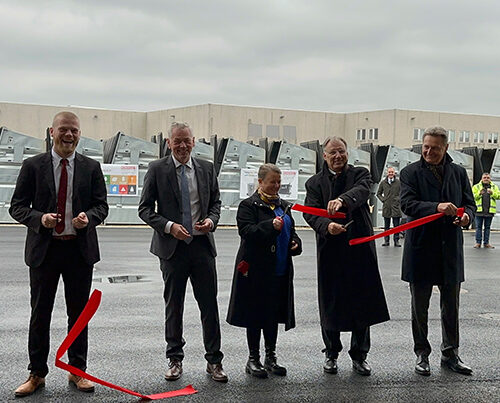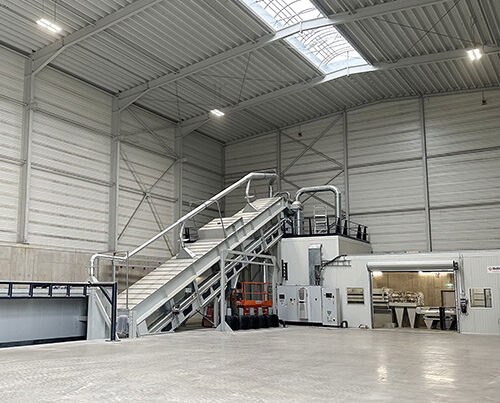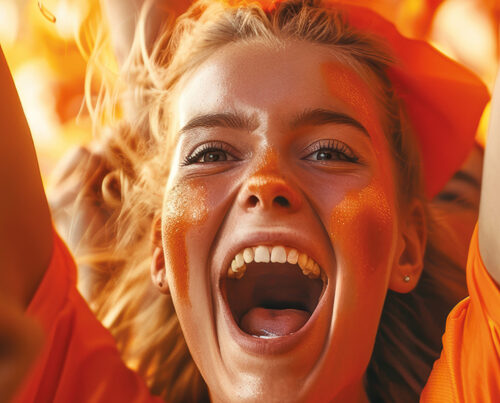From solar energy, to tree planting and talking bins, all the way through to efficient waste management
The City of Freiburg im Breisgau is situated, quite literally, on the sunny side of life: with around 1,800 hours of sunshine a year, the town is a popular tourist destination and an attractive place for the approx. 230,000 local residents to live. A town that sets great store on sustainability. Which is why Freiburg gave itself the title “Green City” in 2008 and has been marketing itself as such since then to reflect its many environmental activities. It is not by chance, therefore, that its well-known football club, SC Freiburg, has also taken on a pioneering role. A look at Freiburg shows how football and sustainability are intertwined. At the end of the day, being a success is a team performance – also when it comes to conserving resources and tackling climate change.
The Europa-Park Stadium has the space to hold 34,700 people. That’s 34,700 fans (minus the away fans) who regularly support their SC Freiburg pushing them on to win another three points in Germany’s top flight league, the Bundesliga. “You’ll never walk alone” has become one of football’s most famous songs and there are very few other songs able to better describe that sense of unity that makes football so unique. There may be eleven players on either team battling it out on the pitch but success is often marked out by the surroundings – by the ‘twelfth man’ backing them all the way. The twelfth man – this is the fans who support their team through thick and thin. The twelfth man is also all the staff who work hard every match day – at the beer stands and at the turnstiles. And the twelfth man is also all the external partners who deliver their services to make sure the match is able to be held in the first place.
Setting new standards: the Dreisam Stadium
When the Europa-Park Stadium was used for a Bundesliga match for the first time in October 2021 (it ended in a 1:1 draw against Leipzig), it also meant an era was coming to an end: the era of the Dreisam Stadium. Since then, the Dreisam Stadium has been used to host the home matches of SC Freiburg’s 2nd eleven men’s team and its women’s team. Built in 1953, this stadium has been setting exceptional standards in one area in particular: Freiburg’s ‘old’ home ground has always had sustainability high up on its list of priorities.
It is hardly surprising, for example, that solar energy plays such an important role in a town that has so many hours of sunshine a year. Which is why, when the new south stand was built at the Dreisam Stadium back in 1995, solar panels were also installed on the roof – the first ever on the roof of a Bundesliga club. When Germany held the World Cup in 2006 and football fever gripped the country, the Dreisam Stadium was the first fully solar powered stadium in Germany. A place where many people come together is also a place where people can get things moving. And so, with the club launching a whole number of activities to ensure resources are handled responsibly, it was not just the football fans who liked the stadium but climate campaigners as well. Just two examples here are the waterless urinals and the water-saving taps that were installed in 1996. The solar panels have also been continuously extended and are now on the roofs of the other stands as well. Other sustainable measures on the list include building a combined heat and power station and a deep well so the club can access its own supply of water for watering its grounds.
The Dreisam Stadium is, therefore, a tough act to follow. “Handling resources responsibly and using them sparingly are fundamental principles that are at the very core of SC Freiburg’s identity. And this is what we wanted to see reflected in a variety of areas in our new Europa-Park Stadium,” explained Marcel Boyé, head of SC Freiburg’s organisation and stadium department, before adding: “And, of course, our stadium should fit in with our club, our city and our region.”

The goal: a sustainable stadium
And so the “sustainable stadium” in Freiburg is taking shape. What, though, actually makes it sustainable? One major project, for example, aims to make the very most of the town’s many hours of sunshine. Solar panels are currently being installed on the roof and once the work has been completed, the new Europa-Park Stadium will have one of the world’s largest solar roofs ever to have been built on a football stadium. If everything goes to plan, the solar panel installation will be generating electricity by the end of the summer and, with an output of almost 2.4 million kilowatt hours a year, this source of net zero energy will be able to cover all of the stadium’s energy requirements.
While the stadium’s heat supply may not be as conspicuous as the new solar roof, it is certainly also sustainable. One of the first steps of the new stadium project was to connect the building to a heat network that supplies it with process heat – harnessed from waste heat – from the neighbouring industrial estate. Other neighbours located close by, such as the exhibition centre, also benefit from this closed-loop system.
The infrastructure around the stadium has also been designed to promote climate action: besides the dedicated stops for the local public transport systems (bus, tram and Breisgau suburban train), the stadium now has more parking spaces, especially for bicycles. Many Freiburg fans prefer to travel to the games by bike and they can now choose from around 3,700 parking spaces. Everything is in place, therefore, to ensure that the twelfth man can get to their seats in the stadium.
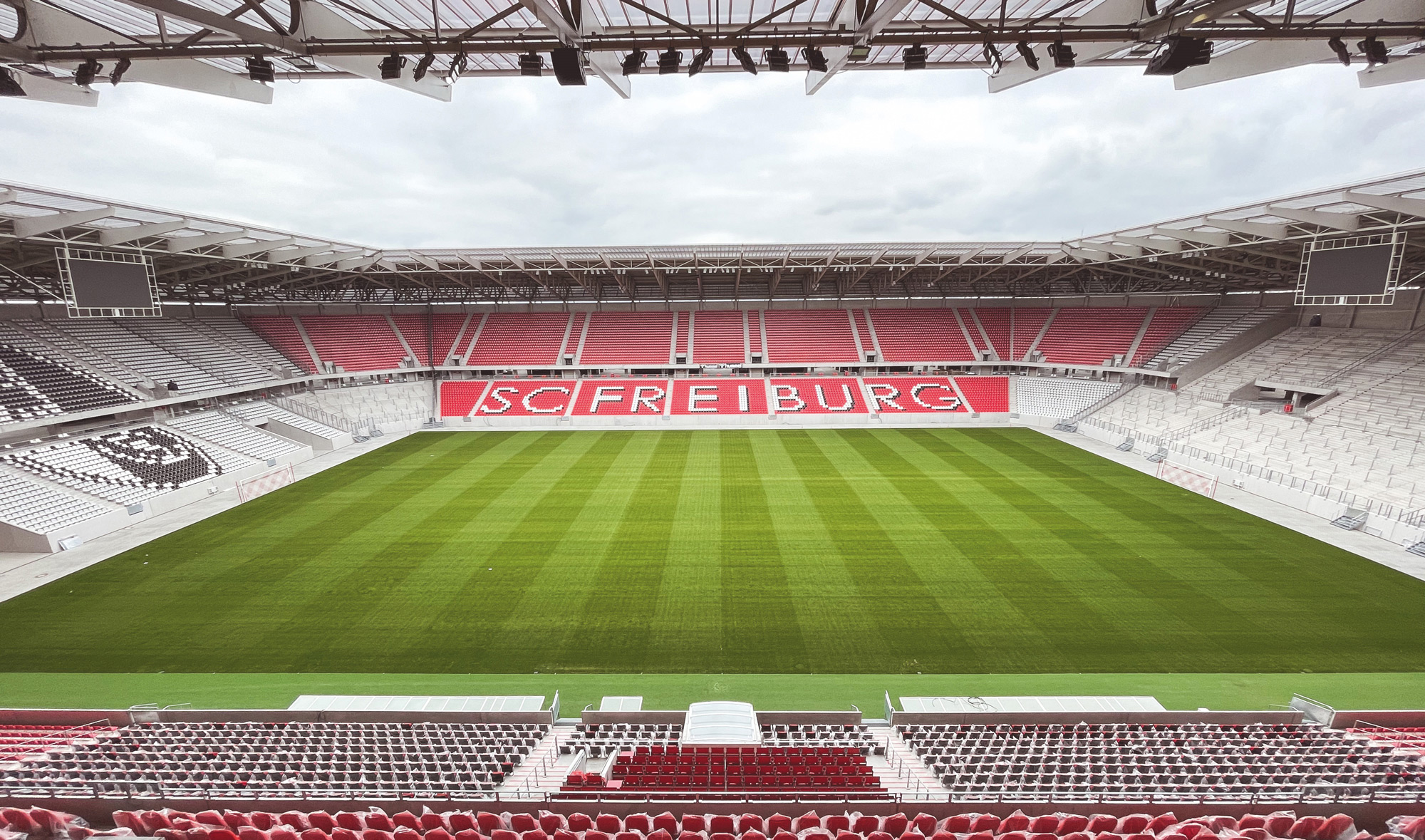
The Europa-Park Stadium can hold 34,700 fans
Collaborating with partners
The other twelfth man, the external partners, also play a decisive role. The key word here: team performance. SC Freiburg can count on getting a great deal of support on that score. Collaboration works particularly well when the partners share the same values and have the same goals. A look at the club’s partnerships shows that there are many facets to sustainability at SC Freiburg.
Badenova, for example, has been the club’s energy and environmental partner for over 20 years now. Based in Freiburg, it is the biggest energy provider in the Südbaden region and has set up a number of sustainable projects with SC Freiburg over the years. Badenova is also there helping the club to set up solar, digital and e-mobility systems at the new stadium. Let us take a look at e-mobility, such an important subject for the future: Badenova and its network subsidiary bnNETZE is currently equipping the Europa-Park Stadium with the necessary infrastructure to cover the growing demand for e-mobility. Ten 22kW charging points are to be installed on the visitors car park to begin with. Further charging points can be added at any time should demand for this service grow.

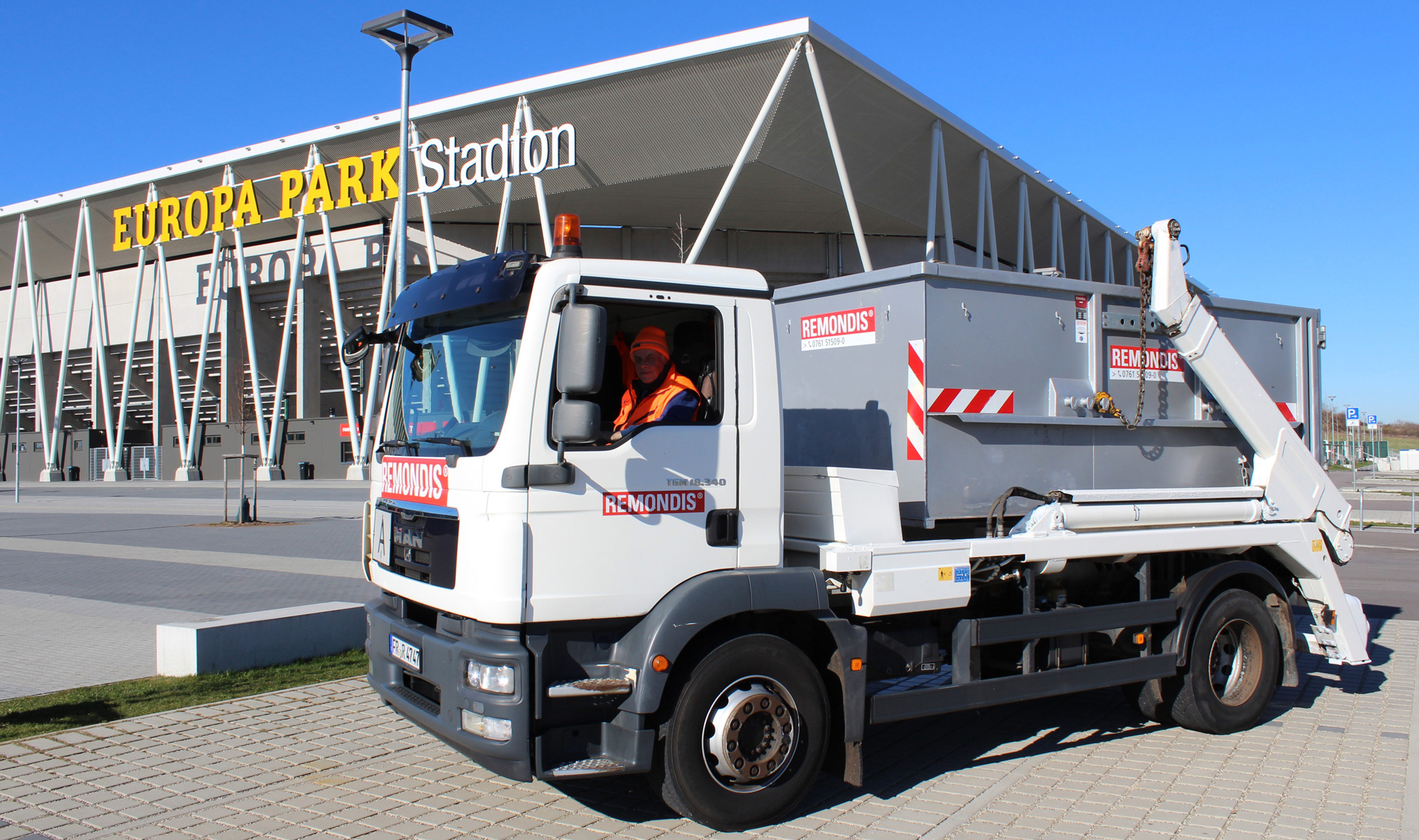
For a clean stadium: REMONDIS is one of SC Freiburg’s team partners
“Handling resources responsibly and using them sparingly are fundamental principles that are at the very core of SC Freiburg’s identity. And this is what we wanted to see reflected in a variety of areas in our new Europa-Park Stadium.”
Marcel Boyé, Head of SC Freiburg’s Organisation and Stadium Department
A tree for every goal scored
A further example of the productive collaboration with Badenova is their tree-planting campaign: since the 2013/14 season, the energy provider has planted a tree in the region every time the club scores a goal. A plaque is also placed next to the tree informing passers-by about the campaign and the name of the goal scorer. Goals for more sustainability, so to speak, and proof that football and climate action can be a successful duo.
Another project was initiated with Badenova at the beginning of the 2021/22 season: seven “talking bins” – made from recycled material – were set up around the Europa-Park Stadium. The distinctive voice of Claus Köhn, the stadium announcer, can be heard whenever waste is thrown into one of these blue bins. Well-known German sayings similar to “Well done! You hit the back of the net!” can be heard – a bit of light humour to encourage fans to use the bins rather than drop litter onto the ground. The electricity needed to do this is provided by the solar modules integrated into the bins. They will continue to be used during the coming 2022/23 season to make visitors more aware of environmental issues and keep the access routes free of litter.
While the talking bins can certainly help promote sustainability, it would be better for the environment if the volumes of waste generated were reduced. The
“Plastikmensch” [Plastic Human] was installed on the boulevard in front of the stadium at the beginning of 2022 to encourage people to avoid producing waste. This 3½-metre-high sculpture was created by the artist Thomas Rees for Freiburg’s “Clean Up Week” in 2018 and, besides iron and wire, is made completely of plastic waste.
This piece of art is regularly moved from site to site to make people more aware of the impact of our modern consumer society and of carelessly discarding plastic waste. And large events, such as football matches, generate particularly large volumes of waste. Making the fans more aware of this is key to having an even cleaner stadium in the future.
From waste management to recycling
However, a “waste-free stadium” is still a long way off. What is important is to collect all the waste generated and make sure it is sent to environmentally friendly recycling facilities so that the materials can be reused.
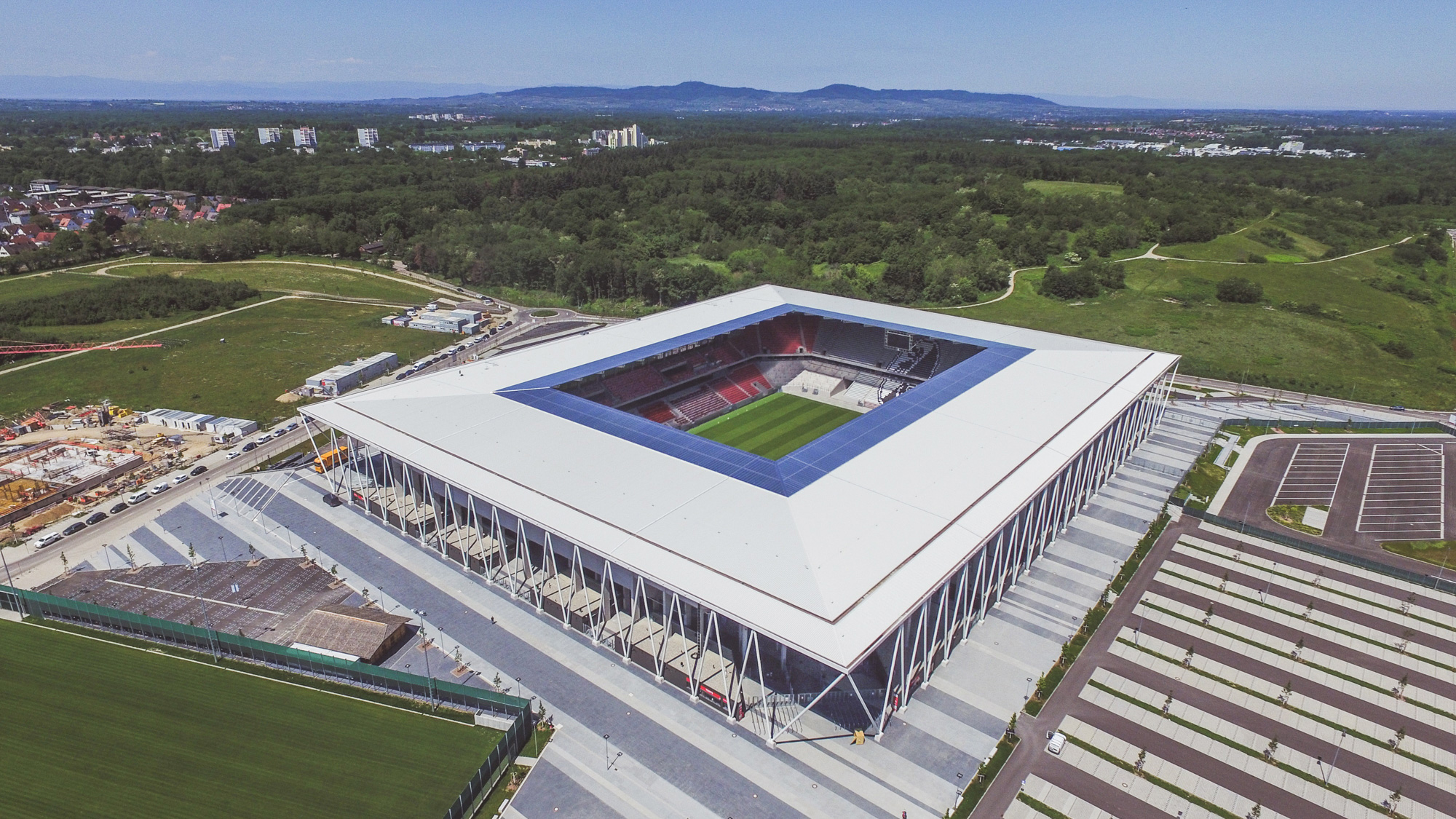
A suitable waste management partner is needed here to ensure the stadium’s waste is recycled. Which is why REMONDIS South has been supporting SC Freiburg for many years now. The task here is to meet the logistical challenges sustainably and efficiently. At the end of the day, more than 30,000 fans coming together at such a stadium to support and celebrate their team produce a whole range of different recyclable materials.
Thanks to its branch in Freiburg, REMONDIS has strong local roots and does not need to travel far to deliver its services. And REMONDIS is proud to be able to support this Bundesliga team. “It has been our job to handle the waste management tasks in and around the stadium for many years – first at the old Dreisam Stadium and now at the new stadium as well,” explained Tom Haubrich, assistant to the branch manager at REMONDIS’ branch in Freiburg. “We collect a whole range of different waste streams – from plant and tree cuttings all the way through to paper. Which means we, too, are helping to make Freiburg more sustainable. And we all want to have a clean city.”
Responsible for the stadium and the region
It was German football legend Alfred “Adi” Preißler who put it in a nutshell: “Theory is a grey area – what’s important is out on the pitch”. SC Freiburg has brought colour to the subject of sustainability with its many activities on and off the pitch. Besides the activities mentioned above, particularly those involving the stadium’s infrastructure, the club regularly launches small and large campaigns across the region. Many of these are targeted at children and adolescents to help make them more aware of environmental issues.
From solar energy, to tree planting campaigns and talking bins, all the way through to efficient waste management: the club takes its responsibility towards the city and the region seriously and, by doing so, grows acceptance and environmental awareness among its fans. This feeling of unity is not just something that is found in Freiburg but is definitely pretty unique to football!
The new Europa-Park Stadium will have one of the world’s largest solar roofs ever to be built on a football stadium.

Home game for the wilderness
SC Freiburg also promotes sustainability and climate action beyond its stadium’s boundaries. In 2018, for example, it entered into a cooperation with the conservation organisation WWF. Due to run over a period of several years, this project aims to maintain and conserve the Black Forest, a UNESCO Biosphere Reserve. A wilderness adventure trail was opened up at the beginning of 2020 in St. Wilhelm, a district of Oberried. Covering a distance of almost five kilometres, children, adolescents and adults can visit the 14 interactive stations set up along the route to discover more about the local plants and animals in the Black Forest.
SC Freiburg and WWF are also intending to enter into a longer environmental partnership that involves, for example, offering hiking trips for SC fans through the wilderness. Football and sustainability are on the same side here!
Image credits: Images 1, 2, 4: SC Freiburg; image 3: REMONDIS







